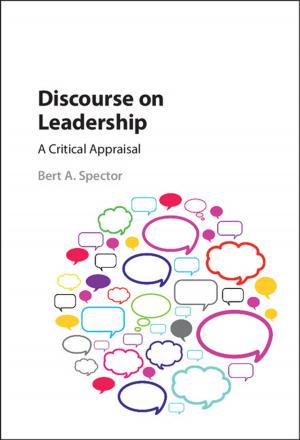Principles of Conflict Economics
A Primer for Social Scientists
Nonfiction, Social & Cultural Studies, Political Science, Politics, Economic Policy, Business & Finance, Economics| Author: | Charles H. Anderton, John R. Carter | ISBN: | 9780511738142 |
| Publisher: | Cambridge University Press | Publication: | March 16, 2009 |
| Imprint: | Cambridge University Press | Language: | English |
| Author: | Charles H. Anderton, John R. Carter |
| ISBN: | 9780511738142 |
| Publisher: | Cambridge University Press |
| Publication: | March 16, 2009 |
| Imprint: | Cambridge University Press |
| Language: | English |
Conflict economics contributes to an understanding of violent conflict in two important ways. First, it applies economic analysis to diverse conflict activities such as war, arms races, and terrorism, showing how they can be understood as purposeful choices responsive to underlying incentives. Second, it treats appropriation as a fundamental economic activity, joining production and exchange as a means of wealth acquisition. Drawing on a half-century of scholarship, this book presents a primer on the key themes and principles of conflict economics. Although much work in the field is abstract, the book is made accessible to a broad audience of scholars, students and policymakers by relying on historical data, relatively simple graphs and intuitive narratives. In exploring the interdependence of economics and conflict, the book presents current perspectives of conflict economics in novel ways and offers new insights into economic aspects of violence.
Conflict economics contributes to an understanding of violent conflict in two important ways. First, it applies economic analysis to diverse conflict activities such as war, arms races, and terrorism, showing how they can be understood as purposeful choices responsive to underlying incentives. Second, it treats appropriation as a fundamental economic activity, joining production and exchange as a means of wealth acquisition. Drawing on a half-century of scholarship, this book presents a primer on the key themes and principles of conflict economics. Although much work in the field is abstract, the book is made accessible to a broad audience of scholars, students and policymakers by relying on historical data, relatively simple graphs and intuitive narratives. In exploring the interdependence of economics and conflict, the book presents current perspectives of conflict economics in novel ways and offers new insights into economic aspects of violence.















